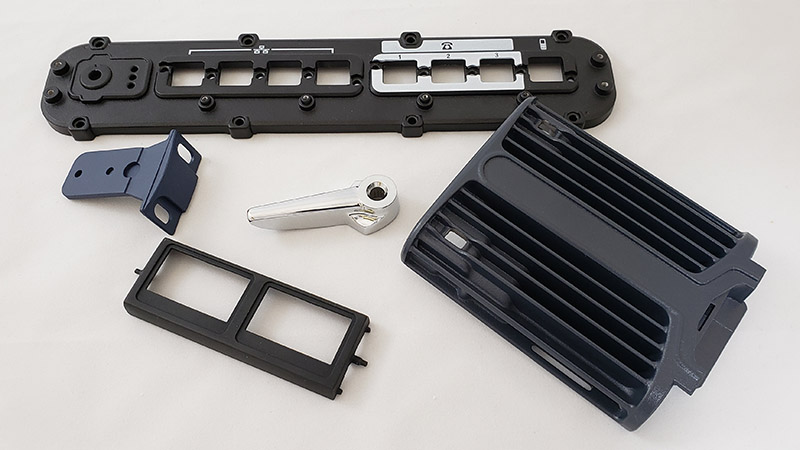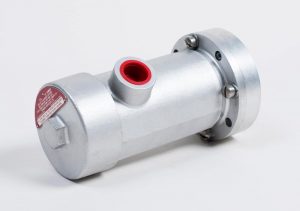Ideal Practices for Upkeep and Applications in the Aluminum Factory Field: A Thorough Overview
Maintaining equipment in the aluminum factory field is vital for functional success. Regular examinations and anticipating upkeep can significantly lower downtime and boost safety and security. Advanced modern technologies, such as IoT and information analytics, play a pivotal function in this process. Nevertheless, comprehending the full range of finest methods needs a better assessment of certain methods and their influence on performance. What are the crucial parts that contribute to a trusted upkeep framework?
Significance of Routine Upkeep in Aluminum Foundries
Regular maintenance plays a vital function in the efficient procedure of aluminum foundries. By systematically servicing and evaluating devices, foundries ensure peak performance and longevity of machinery. Normal upkeep activities, such as element, lubrication, and cleaning substitute, assistance stop unexpected breakdowns that can cause costly downtime.
Moreover, routine checks improve workplace safety and security by determining possible dangers before they rise into significant problems. Tools that is well-kept runs a lot more effectively, causing boosted product high quality and lowered waste. Furthermore, adherence to a structured maintenance routine can sustain compliance with market regulations, consequently cultivating a reputation for reliability and high quality within the market.
Applying Predictive Maintenance Strategies
Predictive maintenance strategies take the concepts of regular upkeep a step even more by leveraging data analytics and progressed surveillance technologies. In aluminum foundries, these techniques make it possible for operators to expect devices failings prior to they happen, therefore decreasing unexpected downtimes and enhancing operational effectiveness. By using sensing units and IoT tools, real-time information can be accumulated on machine efficiency, enabling the identification of potential problems with predictive analytics.
Optimizing Melting and Pouring Processes
Efficient melting and pouring processes are important for making the most of efficiency and ensuring the high quality of aluminum castings. To enhance these procedures, shops should focus on accurate temperature control throughout melting, as this straight affects the metallurgical residential or commercial properties of the alloy. Using advanced melting technologies, such as induction and resistance melting, can boost power effectiveness and minimize cycle times.
Executing automated pouring systems decreases human mistake and keeps uniformity in the putting process. Appropriate mold preparation, including adequate preheating, is important to stop thermal shock and enhance mold longevity.

Enhancing Security Protocols in Factory Workflow
Prioritizing security in aluminum shop operations is important for safeguarding employees and ensuring a productive setting. Reliable security procedures include normal training sessions that emphasize the significance of individual safety equipment (PPE), such as goggles, gloves, and headgears. Additionally, the establishment of clear emergency situation procedures is crucial in managing potential accidents.
Regular evaluations of tools and equipment assistance determine risks before they rise right into significant concerns. Executing a durable reporting system motivates employees his comment is here to connect safety and security problems without anxiety of consequence. Fostering a culture of safety and security assurances that every employee comprehends their role in preserving a secure workplace.
Additionally, ensuring proper air flow and surveillance air high quality can reduce exposure to damaging fumes and dirt. By strengthening these practices, aluminum shops can greatly decrease the risk of mishaps and produce a setting where employees really feel valued and risk-free, inevitably boosting total operational performance.
Leveraging Modern Technology for Improved Performance
Utilizing sophisticated technology has actually come to be significantly necessary for aluminum foundries intending to improve operational efficiency. Automation and robotics play a crucial function in enhancing production processes, additional reading decreasing labor prices, and reducing human error. Applying real-time monitoring systems enables the continuous assessment of equipment performance, allowing positive maintenance and decreasing downtime.
The assimilation of information analytics supplies useful understandings into functional process, promoting much better decision-making and resource allowance. Predictive analytics can identify possible failings before they take place, further optimizing upkeep routines.
Furthermore, adopting innovative melting and casting innovations boosts power effectiveness and product return, which are basic for sustainability in the industry. By welcoming these technological improvements, aluminum factories can not only improve performance but likewise preserve a competitive edge in an increasingly demanding market (aluminum foundry). Inevitably, leveraging innovation is essential in driving technology and improving total operational performance within the market

Frequently Asked Questions
What Prevail Indications of Tools Wear in Light Weight Aluminum Foundries?
Common indicators of tools wear in light weight aluminum factories consist of uncommon sounds, reduced efficiency, increased vibration, overheating components, leakages, and noticeable rust. These signs frequently signal the requirement for maintenance or prospective substitute to prevent pricey downtime.
Just How Can I Train Personnel for Effective Maintenance Practices?
To train personnel for effective maintenance techniques, one can apply hands-on workshops, create extensive guidebooks, motivate mentorship programs, and perform regular assessments to examine skills and expertise, ensuring all workers read this article recognize maintenance protocols thoroughly.
What Are the Environmental Laws for Light Weight Aluminum Foundries?
Aluminum foundries undergo numerous environmental laws, consisting of discharges control, waste monitoring, and resource conservation. Conformity assurances minimal environmental impact, promoting sustainability while adhering to neighborhood, nationwide, and global environmental criteria and laws.
How Do Factories Take Care Of Waste and Recycling of Aluminum?
Foundries take care of waste and recycling by carrying out systems for collecting scrap aluminum, using sophisticated separation modern technologies, and teaming up with recycling centers to guarantee reliable recuperation processes, therefore minimizing ecological impact and promoting sustainability within the market.
What Are the Expenses Related To Carrying Out Advanced Technologies?
Applying sophisticated technologies in factories incurs considerable costs, consisting of preliminary investment, training, and upkeep expenses. Nevertheless, the long-term advantages, such as raised efficiency and decreased waste, usually validate these expenditures, bring about boosted earnings.
Regular maintenance plays a crucial duty in the efficient operation of aluminum factories. In light weight aluminum shops, these approaches make it possible for drivers to prepare for devices failings before they happen, thereby minimizing unexpected downtimes and enhancing operational performance. Making use of advanced modern technology has become significantly vital for aluminum shops intending to enhance functional efficiency. Usual signs of tools wear in light weight aluminum shops consist of unusual noises, reduced performance, enhanced resonance, overheating parts, leakages, and noticeable rust. Implementing innovative technologies in shops sustains considerable expenses, consisting of first financial investment, training, and upkeep expenses.